
California Western Faculty Highlights – March 2025
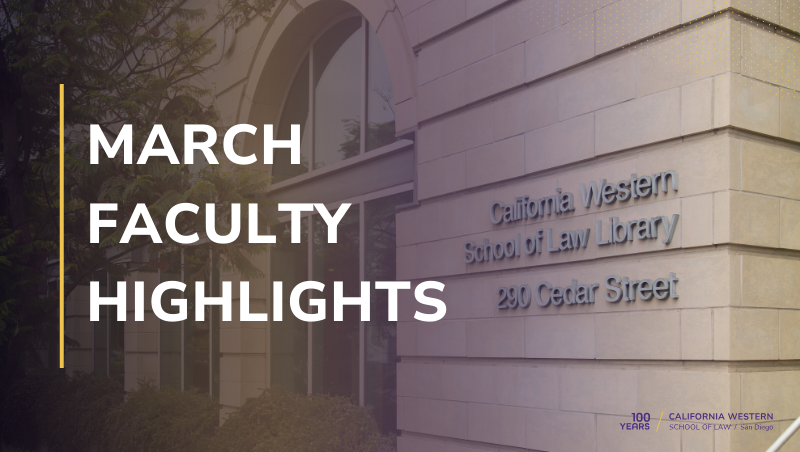
SAN DIEGO (April 1, 2025) -- Faculty at California Western School of Law (CWSL) are continuing to prolifically produce groundbreaking work and present it across the country and around the globe.
Here are some highlights of the faculty’s activities from the month of March:
President and Dean Sean M. Scott
Dean Sean Scott joined 16 other California law school deans in signing a letter to the California Supreme Court in response to the February Bar Exam.
Dean Scott joined 78 other law school deans in signing a letter to reaffirm basic principles: The government should not punish lawyers and law firms for the clients they represent, absent specific findings that such representation was illegal or unethical. Punishing lawyers for their representation and advocacy violates the First Amendment and undermines the Sixth Amendment.
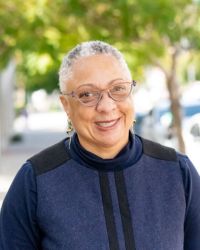
Vice Dean for Academic Affairs and Professor of Law Hannah Brenner Johnson
Vice Dean Hannah Brenner Johnson and co-author Professor Renee Knake Jefferson (University of Houston Law Center)’s book review, “Dirty Laundry - A Review of Supreme Bias: Gender and Race in U.S. Supreme Court Confirmation Hearings” (Christina L. Boyd, Paul M. Collins, Jr., and Lori A. Ringhand, authors) has been accepted by the University of California, Davis Law Review.
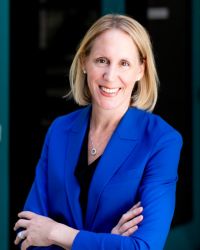
Chief Justice Roger Traynor Professor of Law William Aceves
Professor William Aceves has been announced as American Branch, International Law Association (ABILA) 2025 co-chair. He has served on the ABILA board for many years and was recently elected to serve as vice president.
Professor Aceves has been named to the American Civil Liberties Union, Inc.’s National Board of Directors as Member-at-Large for California.
Professor Aceves’ article, “Whose Children?” has been accepted by the Washington University Law Review, forthcoming 2025.
Professor Aceves’ article, “The Codification Project: Protecting Conscientious Objection as Secular Protest”, has been accepted by the Boston University Law Review, forthcoming 2026.
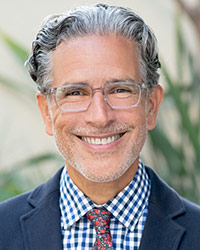
Dean Steven R. Smith Professor of Law Susan Bisom-Rapp
Professor Susan Bisom-Rapp served as a moderator for a panel at California Western Law Review and International Law Journal's Spring 2025 Symposium, How Labor and Employment Laws Work in Today's Global Economy. The panel, "Challenges in a Pre- to Post Pandemic World," considered the pandemic's legal lessons, silver linings, and how policymakers might prepare for the next global health emergency.
Professor Bisom-Rapp travelled to Modena, Italy to attend Employment in the Era of AI and Digital Platforms, a conference at the University of Modena's Marco Biagi Foundation. She was moderator and the discussant for the panel "The Role of AI in HRM: Challenges, Remedies, and Employee Rights."
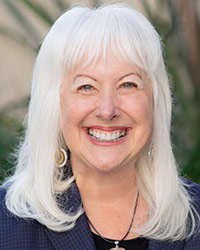
Professor James Cooper and co-author Kashyap Kompella’s book, A Short and Happy Guide to Artificial Intelligence for Lawyers, was featured in TechTarget’s Targeting AI podcast. The podcast is available on Apple and Spotify.
Professor Cooper and co-author Kashyap Kompella joined U.S. Magistrate Judge Allison H. Goddard for the San Diego Federal Bar Association’s CLE webinar, “Beyond the Hype: Real World Applications and Ethical Implications of AI in Legal Practice”.
Professor Cooper served as a moderator for a panel at California Western Law Review and International Law Journal's Spring 2025 Symposium, How Labor and Employment Laws Work in Today's Global Economy. The panel, “Artificial Intelligence Shifting Protocols”, focused on the ever-evolving nature of artificial intelligence and how leading experts in the field see and/or predict its effects in the workplace.
Professor Cooper spoke about intellectual property rights and technology at the Outreach Program for Advancing Learning in STEM (OPALS) at the UC, San Diego Institute of Engineering in Medicine.
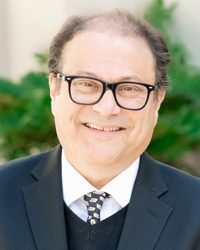
Professor Shawn Fields published an Op-Ed, "How Trump Is Weaponizing Federal Spending Power," in The Hill. Fields examines how the Trump administration's threats to withhold federal funds from states that do not voluntarily comply with his political priorities (from ending DEI initiatives and banning trans athletes in women's sports to passing voter ID laws) exceed the scope of the Executive's constitutional authority and violate the U.S. Constitution's prohibition on undue federal coercion of states.
Professor Shawn Fields has placed his most recent article, "Police Reform as System Justification," in the Journal of Criminal Law and Criminology (forthcoming 2026), a peer-reviewed journal and the most highly ranked criminal law specialty journal in the United States. Fields contends that current police reform efforts centered around procedural justice and algorithmic predictive policing do little to address substantive issues with policing but instead reinforce the status quo. Fields borrows from social psychology to show how and why people promote these types of system-justifying "reforms" even when doing so works to their detriment.
Professor Fields will appear on the podcast TransLash with Imara Jones, an award-winning podcast dedicated to telling trans stories to save trans lives. Host Imara Jones is a Peabody and Emmy award-winning journalist who interviewed Fields for an upcoming episode about trans people involved in self-defense related criminal cases. Fields will discuss his Nevada Law Journal article "The Elusiveness of Self-Defense for the Black Transgender Community."
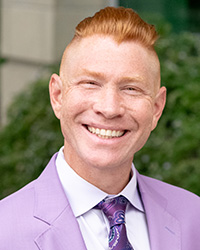
Clara Shortridge Foltz Professor of Law Jessica Fink
Professor Jessica Fink served as a moderator for a panel at California Western Law Review and International Law Journal's Spring 2025 Symposium, How Labor and Employment Laws Work in Today's Global Economy. The panel, “Social Movements & Workplace Inclusion”, explored how social movements have shaped diversity, equity & inclusion efforts, anti-discrimination law, and more.
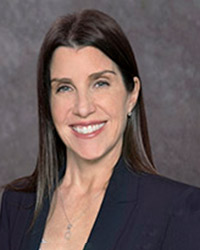
Professor Amy Kimpel co-presented, “How to Avoid Burnout When Working with Violent Videos” with Kevin McGee and Jamie Connolly at the 2025 National Association for Public Defense (NAPD) Rise. Resist. Represent. Virtual Conference.
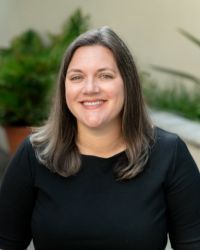
Associate Professor of Law Nancy Marcus
Professor Nancy Marcus’s article “Teaching Around Generative AI Plagiarism Risks,” published in Proceedings, was recognized as a Recent Top Paper by SSRN on multiple occasions in March.
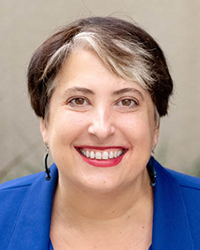
Professor of Law and Director of STEPPS Aaron Schwabach
Professor Aaron Schwabach will be a Fulbright Specialist at the Royal University of Law and Economics (RULE) in Phnom Penh, Cambodia during June and July 2025, teaching classes and helping to build a lasting connection between RULE and CWSL.
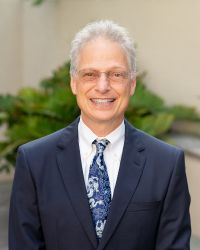
Associate Dean for Research and Professor of Law Erin Sheley
Professor Erin Sheley was quoted in the Times of San Diego article “Ex-U.S. Attorney: Immigration Order Is Diverting San Diego Feds from Fentanyl, Scam Fight,” on the unusual pivot to nonviolent civil offenses from violent crime.
Professor Sheley’s Washington Law Review article, “The Dignitary Confrontation Clause”, was cited by U.S. Supreme Court Justice Samuel Alito in his statement on the Court’s denial of certiorari in the Confrontation Clause case Franklin v. New York.
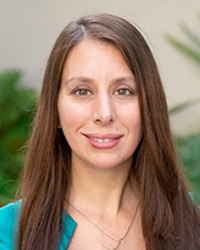
Professor of Law Kristen van de Biezenbos
Professor Kristen van de Biezenbos’s article, “Antitrust & the Immoral Energy Economy,” has been accepted by the Texas A&M Law Review, forthcoming 2026.
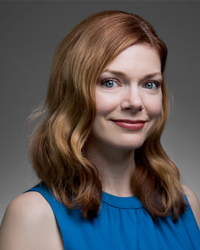
About California Western School of Law
For 100 years, California Western School of Law (CWSL) has trained practice-ready lawyers and thoughtful advocates for justice. As the first and longest-running law school in San Diego, CWSL remains committed to providing students with the fundamental knowledge, skills, and real-world experience to thrive in a rapidly evolving legal landscape. CWSL enrolls a student body representative of our diverse society, amplifying access to opportunities for social and economic mobility. Tailored programming allows students to focus on specific areas of interest, and distinguished faculty are dedicated to student growth and scholarship on critical social issues. The law school emphasizes practical, hands-on training through clinics, internships, externships, and pro bono service. CWSL is committed to excellence in education, nurturing compassionate legal professionals who use the law effectively and creatively to solve complex human and societal problems. For more information, visit www.CWSL.edu.
